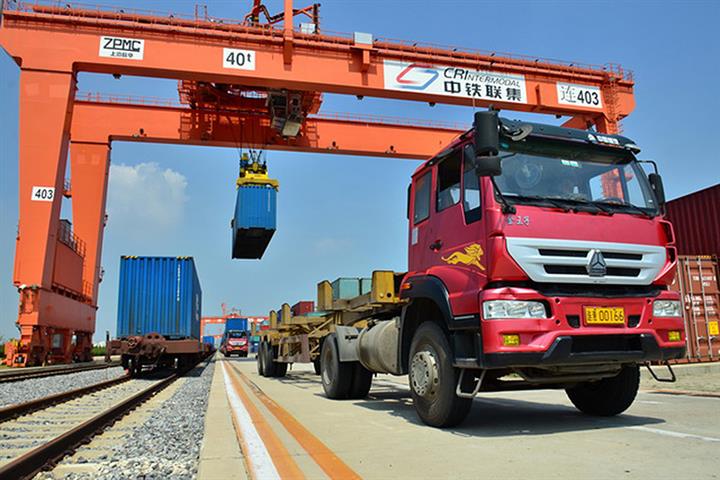 China’s Economic Data Softens in July Amid Covid, Adverse Weather
China’s Economic Data Softens in July Amid Covid, Adverse Weather(Yicai Global) Aug. 15 -- Official data showed China’s economy unexpectedly slowed last month amid Covid-19 flareups, high temperatures and rainfall in the country.
Industrial production rose for a third straight month in July, gaining 3.8 percent from a year ago, according to figures the National Bureau of Statistics released today. But that was below a market consensus for 4.6 percent growth and slower than June’s 3.9 percent.
Retail sales climbed for a second month in a row, gaining 2.7 percent, but fell short of an expected 5 percent gain and 3.1 percent growth the month before. Fixed-asset investment jumped 5.7 percent from January to July, versus a 6.2 percent market forecast and 6.1 percent growth in the first six months of the year.
Frequent Covid outbreaks in many areas of China, coupled with high temperatures and rainfall, made it more difficult to maintain stable economic operations, according to NBS spokesman Fu Linghui.
But China’s economy is resilient, has great potential, and its long-term positive fundamentals have not changed, he said, adding that with support measures, it is expected to regain a positive momentum and stay in a reasonable range.
The global economy also slowed last month, and worldwide inflationary pressures were severe, Fu said.
The service sector and many small- and mid-sized firms are in operational difficulties, making it is hard for them to hire staff and wages are falling, according to Wu Chaoming, vice president of Chasing Institute. That is the biggest constraint on an improvement in consumer spending power, he said.
Consumer Spending
Retail sales of consumer goods this year will increase only by as much as 2 percent, substantially lower than last year, Wu predicted, with Covid outbreaks also weighing on the figures.
But with more targeted Covid prevention measures and consumption promotion policies, consumer spending is expected to gradually recover, according to the NBS’ Fu. Preferential policies for buying autos and home appliances in particular will drive sales growth, he said.
Infrastructure investment jumped 7.4 percent between January and July from a year earlier, with the growth rate 0.3 percentage point faster than that from January to June, accelerating for three consecutive months.
Analysts believe the quicker pace of investment is due to the issuance of special bonds, guaranteeing infrastructure project funds, and with the pandemic under control, the policy for smooth transport logistics has achieved practical results, ensuring progress of project construction.
China will focus next on “expanding effective demand, giving play to the role of special bonds, expand infrastructure investment, drive the growth of related manufacturing investment, promote the implementation of consumption promoting policies, and promote the stability of foreign trade while improving quality,” Fu said.
The country will also “implement tax cuts to help alleviate corporate difficulties, reduce business costs, and consolidate the foundation for industrial production recovery,” he added.
Editor: Peter Thomas